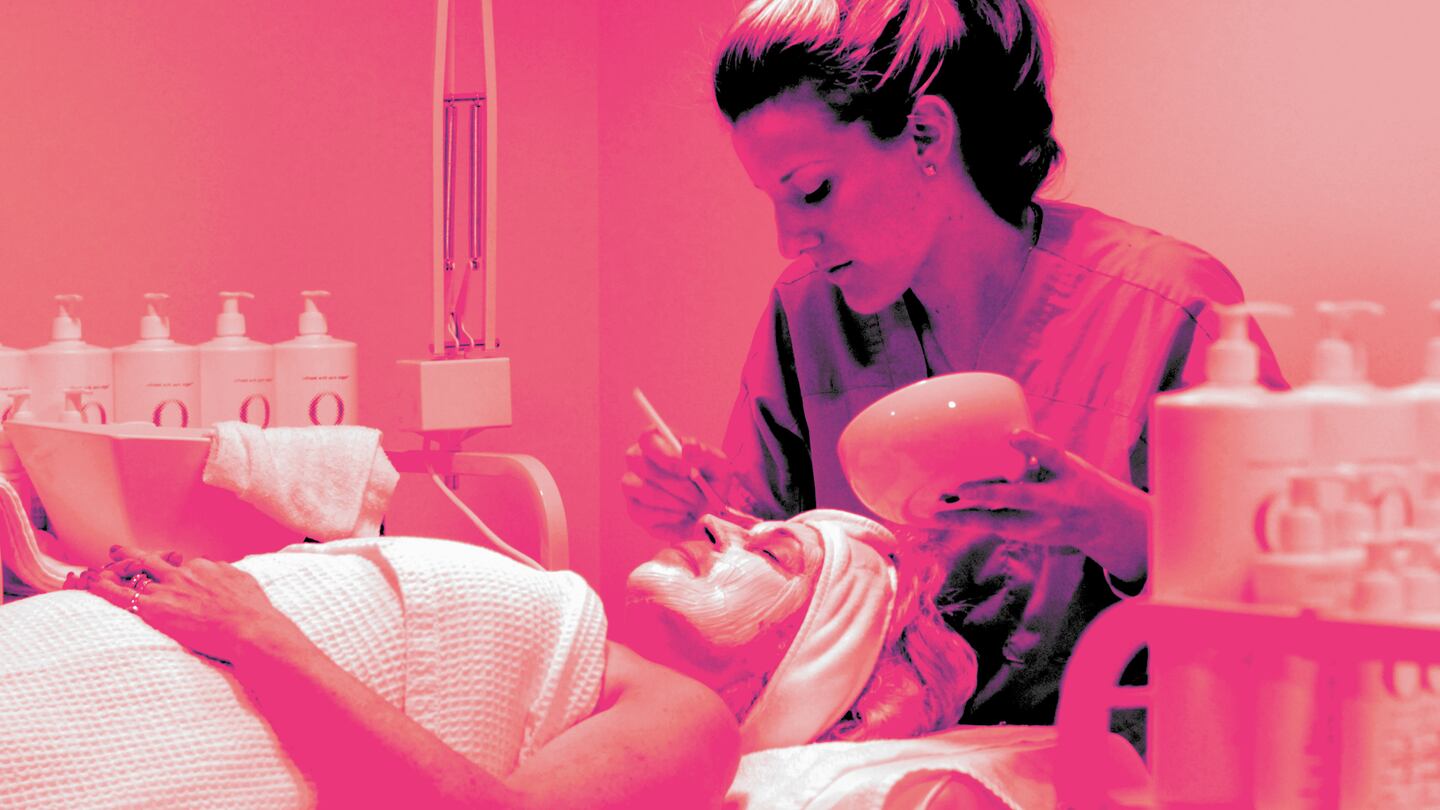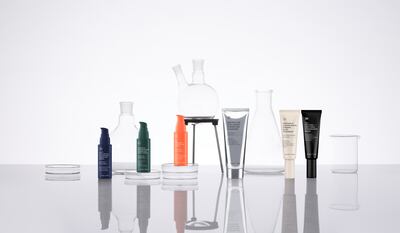
The Business of Fashion
Agenda-setting intelligence, analysis and advice for the global fashion community.

Agenda-setting intelligence, analysis and advice for the global fashion community.

In the last decade, the rise of direct-to-consumer (DTC) brands from Warby Parker to Glossier has made a digital-first strategy the new standard for entrepreneurs. But as beauty upstarts prioritise owned sales, other distribution channels have been sidelined, particularly selling in clinical settings, such as aesthetician or dermatologist’s offices.
“Going into clinics as a professional brand is a dying industry, which is very sad,” says Natalie Kingsley-Fieldgrass, managing director of Biologique Recherche’s UK business. She also oversees Embassy of Beauty, a clinic in London that only treats with and sells the French beauty brand. “I don’t see new professional brands emerging as much as these online brands.”
Save for a few exceptions, Biologique Recherche has traditionally restricted its sales channels to professional skin care and aesthetic clinics; even shoppers who come in with a product in mind must answer questions about their skin and receive personalised recommendations before they buy.
Going into clinics as a professional brand is a dying industry.
That approach makes the brand a rare breed today. Despite the fact that clinically-minded and branded skin care players have seen sales soar recent years — in drugstores and high-end beauty boutiques — fewer newcomers are leveraging clinics as an opportunity to reach a wider, often deep-pocketed audience. But this strategy, increasingly overlooked for how arduous and time-consuming it can be, has the potential for high reward, offering brands a new revenue stream and giving products a trusted champion.
ADVERTISEMENT
A Reliable, Recommendation-Heavy Place to Sell
Diversifying income sources is a primary driver for brands who enter the space. For Nicolas Travis, the Singapore-based founder of Allies of Skin and PSA, two skin care brands making the rounds at top retailers like Cult Beauty, Asos and Sephora, it was about preemptively protecting her brands.
“I realised we relied too much on retailers,” he said. “I needed to find another channel for us just in case ... they decided to drop us and 50, 60 percent of our business is gone.”
The solution came in a deal with R2 Technologies, the company behind laser treatments like Fraxel and Clear + Brilliant. Staring in April, R2 will use Allies of Skin and PSA’s products, including a proprietary mask and unreleased recovery balm, as topical treatments for its new Glacial medical devices targeting melasma and pigmentation. The partnership will get Travis’ brands in the offices of at least 65 top plastic surgeons and dermatologists who have already bought the devices, including Harold Lancer, whose clients include Victoria Beckham.
As part of the deal, R2 will also take a stake in the business and become the clinical distributor for both brands.

Allies of Skin and PSA’s sales are currently evenly split between direct-to-consumer and wholesale respectively. While Travis wants DTC to continue taking up a 50 percent share, the goal is for clinics to eventually make up 30 percent of the business.
The move took on more urgency once Covid-19 hit and shoppers were barred from going to stores and finding new products. He’s hoping this partnership will help drive discovery instead, not just for consumers, but other clinical partners, too. It’s already working: more private clinics have already reached out to buy products on a wholesale basis.
“It’s consistent business, they pay on time, it’s so easy,” says Travis. “There’s no waiting 60 days for a retailer to pay you.”
ADVERTISEMENT
Dermatologists have also been in high demand in the wake of Covid-19, as fewer people apply makeup daily to cover up imperfections and focus instead on skin care. “I’ve seen more patients during this time with minor skin care concerns that may have gone to a beauty salon or aesthetician, but weren’t able to,” says Dr. Alia Ahmed, a London-based consultant dermatologist and psychologist who, unlike salons, has operated throughout lockdowns.
But beyond the pandemic-induced skin care hype, beauty professionals — whether dermatologists, facialists or aestheticians — are particularly effective at driving sales.
“There’s no better way to legitimise our brand than to be associated with an FDA approved medical device, used by physicians, or sold in clinics,” says Travis. “Whatever your dermatologist tells you to use, you’re going to buy and use. If you go to a Sephora or a Space NK and are recommended something, you say, ‘I’ll think about it, can I get a sample?’”
Indeed, there is a market for dermatologist skin care recommendations: digital consultation services are growing, like GetHarley, a new online platform connecting dermatologists and facialists with shoppers for consultations and product curations (including items that can only be found in clinics) that are boxed and sent to users. The platform currently has a roster of 400 professionals, including Ahmed.
It’s easier to do simpler ingredients, to claim that their products do less, make some nice packaging, and put it online.
Not Every Brand Can Make It Work
As services like GetHarley grow in the wake of Covid-19, more brands could be persuaded to move into the clinical space. But while it has its upsides, the channel isn’t necessarily the right fit for every skin care brand.
Kingsley-Fieldgrass said the main reason it works for Biologique Recherche is the potency of its 150 offerings and the likelihood that treatments one is recommended by a friend won’t work for their skin, which is why it requires the questionnaire.
“If you have a much simpler brand with, let’s say, 20 or 30 products, you wouldn’t need to have such a difficult and complicated procedure,” she said.
ADVERTISEMENT
Building the sort of brand that clinics want to carry is also extremely time-consuming. Travis has already spent two years working on the R2 deal, which involved a rigorous bidding process and for all parties to submit relevant protocols. Beyond forging deals, developing products, testing them on different skin types through clinical trials and pitching results to professionals is a herculean task. One of Biologique Recherche’s products, for example, took seven years to launch, says Kingsley-Fieldgrass.
“New brands don’t want to go through that,” she said. “It’s easier to do simpler ingredients, to claim that their products do less, make some nice packaging, and put it online.”
Brands also need to be ready to compete with legacy clinical brands in a new playing field, and invest in building scientific credentials through education or clinical trials, as Travis is doing for Allies of Skin and PSA.
“Until a doctor actually trusts your brand and really believes in your brand, they may not push your products, they’ll push what they’re most familiar with,” he said. “Getting that mind share is going to be a challenge.”
Related Articles
How Doctor Brands Cash In on Authority
Excitement for its IPO is building, but in order to realise its ambitions, more acquisitions and operational expenses might be required.
In an increasingly crowded space, makeup brands that prioritise natural ingredients are finding new ways to get their message across.
Shana Randhava, Priya Venkatesh, Heela Yang and Robin Tsai will join Imran Amed and Priya Rao to identify the entrepreneurs shaping the future of the beauty industry.
By selling existing formulas under their own name, retailers can tap into the lucrative beauty market without investing in custom formulations. But that doesn’t mean the private label model is an easy win.